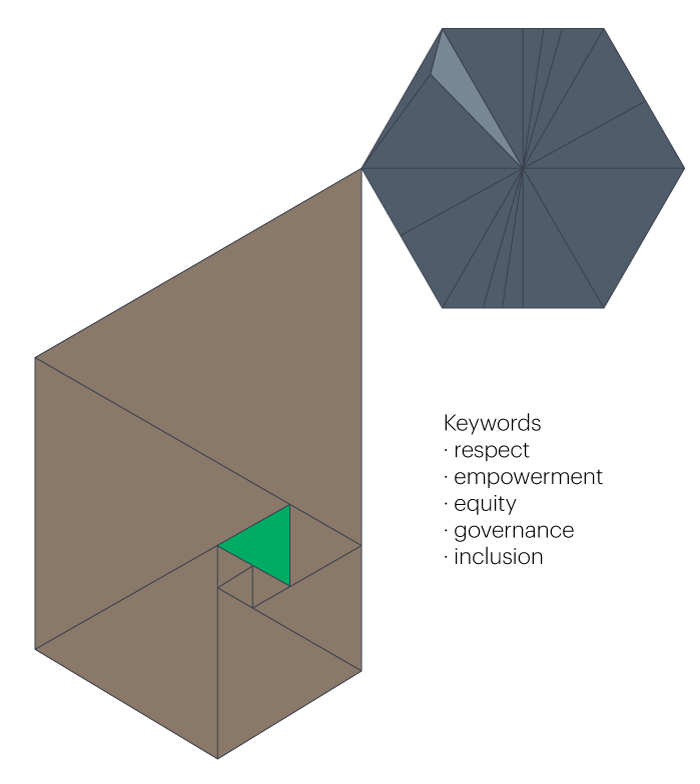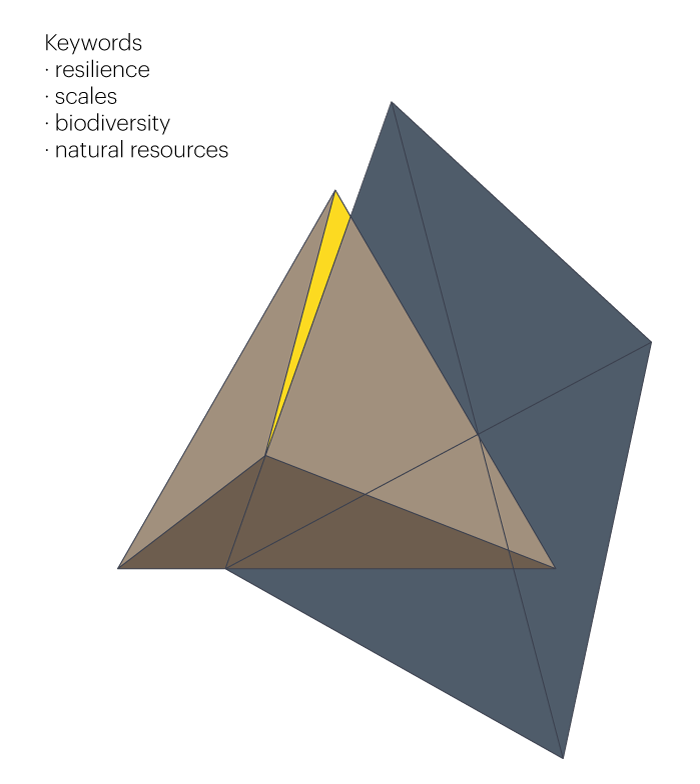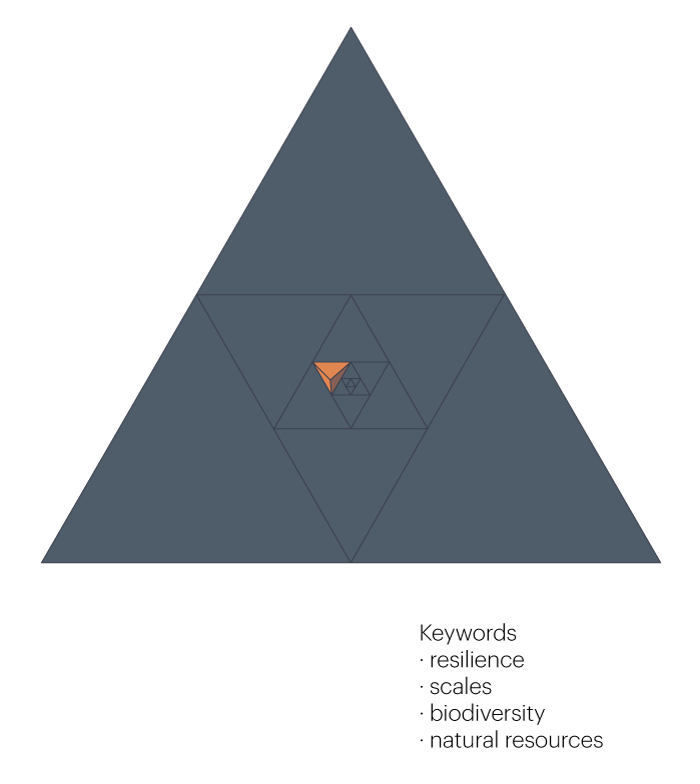Our DNA
OIKO is a leading provider of technical advice and analysis for sustainable development around the world.
OIKO delivers intelligent solutions on the social, ecological and economic dimensions of sustainability and climate change.
We work to catalyze sustainability, climate adaptation and resilience into public and private projects and investments, facilitating the integration of climate science into business and policy decisions.
Our Mission
Our mission is to deliver impartial research and policy advice to ensure and preserve sustainable development.
We use science-based evidence to help users anticipate and prevent the impacts of climate change, inefficiency, scarcity and vulnerability on business, economies, societies and nature.
Our Vision
OIKO was established in 2004 with the vision of contributing to the sustainable development of life on our finite planet. We envisioned a world where the use of science-based earth observational tools and information technologies can radically and extensively improve sustainability of ecosystems, society and livelihoods.
Our commitment is becoming a trusted source of advice for governments and businesses helping them to make the best rational decisions, and to find solutions to restore balance to threatened ecosystems.
Our Values
OIKO is the word used by ancient Greeks for the human habitat. The ancient word was more insightful and comprehensive than today´s, embracing the sustainability dimensions beyond the physical properties.
Through our work we aspire to respect the old three dimensions of sustainable development of human life on our finite planet: social, economic and ecological. Our focus is on rational choices where living conditions and resources on Earth are logically and rationally balanced in time and space.
We endorse the global challenges addressed by the Sustainable Development Goals of The United Nations, including those related to climate change, environmental degradation, and right-based access to resources of the most vulnerable by the year 2030.
Areas of Work
We help our clients understand the implications of sustainability and climate change, specially through the use of science and technology.
To do so, our work accounts for the three dimensions of sustainable development:
Each of the 3 dimensions corresponds to the three-pillar conception of sustainability: social, economic and environmental.
What makes our approach so powerful isn’t the simple relationship between the three pillars. What makes our work so remarkably relevant are directional relationships and transitive relationships we take into account.
The transitivity relationship among the three dimensions (economy, ecology and sociology) evolves in network patterns and degrees of separation uncovering relationships between them that otherwise may seem disconnected or unrelated and are undetected by a relational database.
Climate mitigation
- Earth Observation and Spatial Data
- Access to Clean and Affordable Energy
- Climate Finance Mitigation Upscaling
- Deforestation Forest loss
- Forestry MRV and AFALOU
Sustainable & Natural Resources
- Integrated Water Resources Management
- Renewable and Natural Resources Sustainability
- Climate Public Expenditure Institutional Review CPEIR
- GHG Emissions in the Forestry Sector
Climate Change Adaptation
- Early Warning System
- Disaster Risk Assessment and Management
- Climate Impact and Risk modelling
- The Local Climate Adaptive Living Facility
- Climate Risk and Impact on Corporate Supply Chain
Livelihood Resilience
- Climate Vulnerability and Poverty
- Early Warning System for Food Security
- Socio-economic Impact of Climate
Ecosystems
- Ecosystem Service Valuation
- Ecosystem Based Adaptation
The Social Dimension
Embeddedness
Karl Polanyi, the historian, economist, sociologist and anthropologist, understood the multi-disciplinarity of human actions when he conceived the concept of Embeddedness: the degree to which economic activity is constrained by additional non-economic human and social dimensions.
What makes OIKO different is precisely, the application of embeddedness, where human actions need not be rationalized, and where economic activity provisioning is instead contextualized in social, non-economic dimensions such as kinship, religious, and political circumstances.
This is evident in the collaborative approach to our work: participation, sensitive listening to beneficiaries’ needs, and resilience, responsiveness to the vulnerability and risk of each community. We believe every solution is embedded in a unique social context, requiring a differentiated action.

The Ecological Dimension
Resilience
Ecosystems are physical and living interactions among species and natural resources with a transitive relationship between them (economy, ecology and sociology). Time and spatial scales play a meaningful impact, with many possible network patterns.
OIKO works to underscore and value the unique benefits from ecosystems: marketable products such as pharmaceuticals, recreational experiences, valuable services such as erosion control or water purification, aesthetic values, etc.
All these values need a contextualization and they receive attention in our analysis. Despite the critical role ecosystems play in our planet, these areas are increasingly threatened by the impacts of a growing human population through habitat destruction and air and water pollution.
This ecological dimension is illustrated in our work through resilience, the uncovering of untwined in an unpredictable relationship between rigid physical structures and natural forces which often are undetected by a relational analysis.

The Economic Dimension
Stability
Economics is not a science, it’s a combination of logic and rational decisions to conserve the finite resources of our planet and the rules are used to define and explain the value scarce resources have today and their possible value in the future.
We understand economic sustainability as a practice extending the time and space dimensions to future generations, where we support long-term economic steady state growth, without negatively impacting social, environmental, and cultural aspects of the community.
Our work engages economic entities (people, institutions, policies, events, consumption, actions, concepts and places) and the immeasurable relationships in an open circle of production and consumption of natural resources.
We have illustrated this nuclear idea symbolized by a colored brown core, crystalized inside a complex blue grid of iterative and ever-growing linear relationships among the elements of the triangular concept of sustainability. The core is representing the life “returns” of the Earth’s natural resources rather the approach of consuming them.


